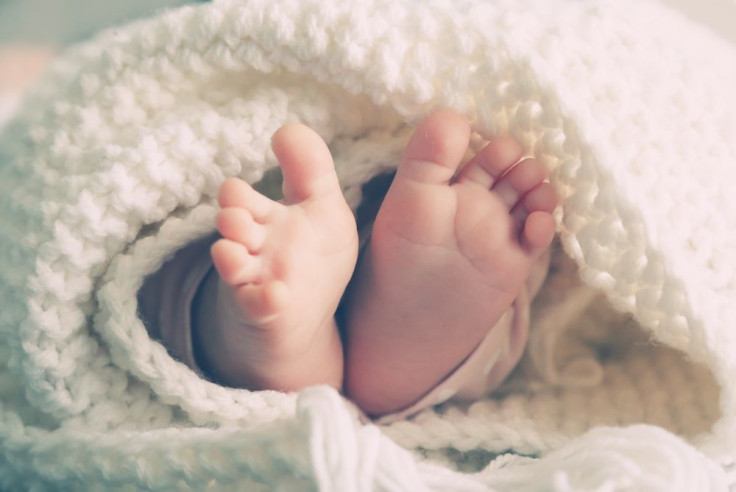New Parent? Your Little Ray Of Sunshine Can Cause A Decline In Happiness And May Prevent You From Having Number 2

A recent study has investigated a touchy subject most parents are probably familiar with: Having a baby can make you feel really sad. According to the research, this decline in happiness experienced after becoming a new parent may even help to explain why birth rates are falling in much of the Western world.
The study, which was conducted by researchers at the Max Plank Institute for Demographic Research in Rostock, Germany, was based on the analysis of responses from about 20,000 mothers and fathers in Germany. Parents were asked to measure their general happiness on a scale from 0 to 10 throughout the experience of expecting and having a child. According to the press release, results revealed a trend in the well-being of the new parents, with many experiencing a sharp increase in happiness shortly after the birth of their child followed by a steady decline.
“There are great expectations, happiness goes up, and it may stay up immediately after birth. But for a large number of parents, there is a dramatic drop in happiness,” Mikko Myrskylä, lead study researcher explained, as reported by The Independent. “The majority experience some decline in happiness.”
The parents’ happiness fell an average of 1.4 units following their child’s birth. More than a third of parents, however, experienced a decline in two or more units of happiness. According to Myrskylä, this decline in happiness was greater than that witnessed in individuals who had recently become unemployed, divorced, or even those who had lost a loved one.
In a previous study, Myrskylä and his colleague Dr. Rachel Margolis found that there were many factors that influenced the experience of having your first child. For example, parents who had children at older ages and had more socioeconomic resources generally tended to have more positive and long-lasting responses to the birth of their first birth than their less educated young counterparts. Cultural differences also played a role in new parents’ happiness. For example, in Britain “partnered” couples, which the study describes as married couples, experienced more happiness than un-partnered parents. However, in Germany the difference in happiness between these two groups was “small and only marginally significant.” The team also found that while the birth of a couple’s first two children is generally associated with an increase in happiness, by the birth of the third child this feeling has significantly decreased.
Myrskylä and Margolis believe that understanding the behavior pattern of parents before and after having children gives important insight into the factors behind low and late fertility. The survey revealed that only 58 percent of parents who reported experiencing sadness following the birth of their child went on to have a second baby within 10 years, compared with 66 percent of parents who did not report any sadness. These findings would suggest that, for some, the sadness of becoming a parent for the first time prevents couples from repeating the experience.
“Parents' experience with and after the first birth help predict how large the family will be eventually,” explained Myrskylä in a statement. “Politicians concerned about low birth rates should pay attention to the well-being of new parents around and after the birth of their first child.”
The problem of low birth rates is especially significant in the West. According to The Telegraph, despite an overall world population growth of 1.2 percent, the West is seeing population rates around 10 percent lower than those of developing countries. The trend is remarkably noticeable in Italy, where the country’s birth rate is currently at its lowest since the foundation of the modern state in 1861.
"We are at the threshold where people who die are not being replaced by newborns. That means we are a dying country," Beatrice Lorenzin, the minister of health explained, as reported by The Telegraph.
The goal of the study is to raise awareness of this decline in happiness that is shared by many new parents in order to erase the taboo and encourage people to speak about their experiences.
“There is more or less a taboo regarding the wellbeing of new parents,” Myrsklyä added. “The medical profession is starting to acknowledge this and postpartum depression is getting more and more attention, but it’s still something that compared to many other events in life is thought of as something that can be and should be only experienced positively.”
Source: Margolis R, Myrskyla M. Parental Well-being Surrounding First Birth as a Determinant of Further Parity Progression. Demography. 2015.



























